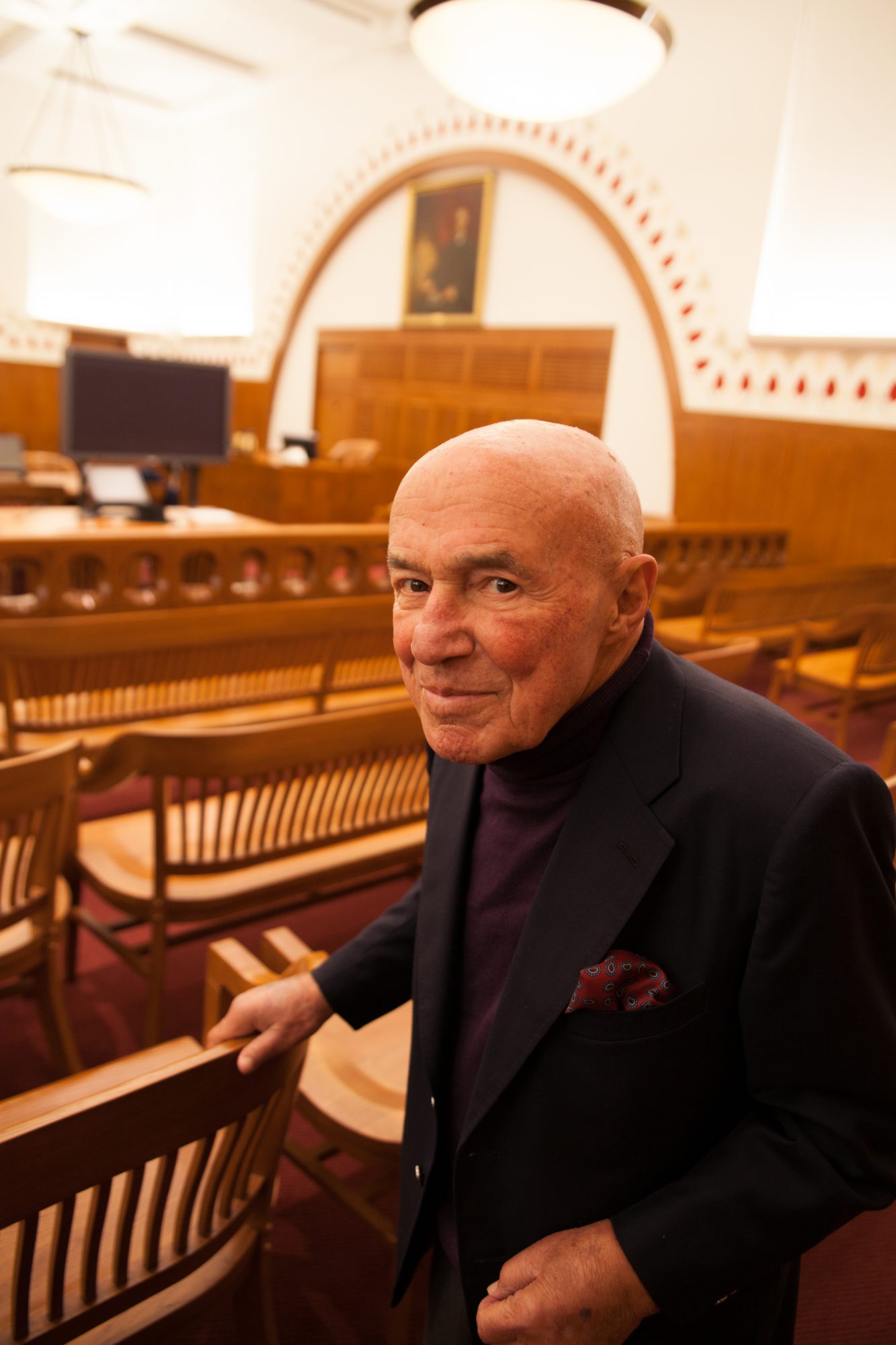Joseph L. Tauro, the first judge to rule a federal law defining marriage as only between a man and a woman was unconstitutional, died at his Marblehead home on Friday.
The retired U.S. District Court judge, who suffered from a rare blood cancer, was 87.
“Judge Tauro was very well-respected, very thoughtful, and fair,” said Richard Vitali, an assistant city solicitor in Lynn who appeared in Tauro’s courtroom several times. “Many of the cases were settled before trial because he was the kind of judge who brought parties together.”
In a judicial career that spanned more than four decades, Tauro was the longest serving justice on the court since the U.S. District of Massachusetts was created by Congress in 1789.
He was appointed to the federal bench in 1972 by former President Richard M. Nixon after having served as U.S. Attorney, the top federal law enforcement officer in Greater Boston.
In 1992, he was elevated to chief justice and served in that capacity until he assumed senior status in 2013, the year he retired.
At the time of his retirement, Chief Judge Patti B. Saris said Tauro will have a lasting legacy as one of the greatest judges in Massachusetts.
“He has ruled in favor of protecting the rights of the mentally disabled and of gays and lesbians,” she said. “With his common sense, he led this court as a wise chief.”
His father, the late G. Joseph Tauro, who was born in Lynn where he practiced law for more than 30 years and later moved to Swampscott, served as chief justice of the Massachusetts Supreme Court and the Massachusetts Superior Court in the 1960s and 1970s.
A graduate of Brown University and Cornell Law School, Tauro practiced law for a number of years with his own firm. He taught at the Boston University School of Law.
Tauro will be remembered for two landmark cases. In 2010, he ruled the Defense of Marriage Act (DOMA), which restricted marriage to a man and a woman, violated equal protection rights of its citizens.
Gay and Lesbian Advocates and Defenders (GLAAD) had filed suit challenging the statute’s constitutionality on behalf of several petitioners. The Department of Justice defended the statute on behalf of the government. But in 2013, the Supreme Court ruled by a 5-4 vote that DOMA was unconstitutional. Massachusetts became the first state in the country to allow same-sex marriage.
Advocates for the mentally disabled say Tauro changed the lives of thousands of patients who lived in squalor at state institutions, including the Walter E. Fernald State School in Waltham, and other state schools in Belchertown, Wrentham, Dever, and Monson.
In 1972, Tauro heard a lawsuit from the family of a patient alleging abuse and squalid conditions at a state-run institution for the developmentally disabled, according to a history of the case by slate.com.
Built in the early 1900s to serve the “mentally defective,” the state operated mental hospitals for adults with mental illness and state schools, places for children and other “undesirables” considered to have mental or behavioral issues.
After reading the complaint, Tauro visited the Belchertown State School for the Care and Custody of Feeble-Minded Persons unannounced to see the conditions for himself.
While the school was built to house 400 patients, he found the school packed with more than 1,500 patients.
The judge said while the colonial facade and well-maintained grounds made it look like a well-heeled prep school, inside he saw a youngster drinking from a feces-filled commode.
The buildings were infested with rats that would bite patients routinely tied down to their beds. Patients were sometimes left strapped to their beds for days and staff were known to remove patients’ healthy teeth to make it easier to feed them, slate reported.
In 1977, Tauro issued the first in a series of orders to bring the schools up to federal standards.
The court-ordered plan focused on improving living conditions, hiring more and better-trained staff, and placing residents in more independent, but supervised, homes nearby.
Martin W. Healy, chief legal counsel for the Massachusetts Bar Association, called Tauro a gentleman and down-to-earth judge who had integrity.
“He came from a humble background and distinguished himself outside of his father’s substantial shadow,” he said. “He was compassionate yet unafraid to take on politically sensitive issues like Belchertown where he changed the lives of thousands of patients and their families who were brought peace of mind because of his intervention.”
But perhaps the biggest thing about Tauro that stands out, Healy said, is over many years, he never heard anyone say a negative word about him.
“Coming from the legal field, where it can be contentious, that’s quite an accomplishment,” he said.

